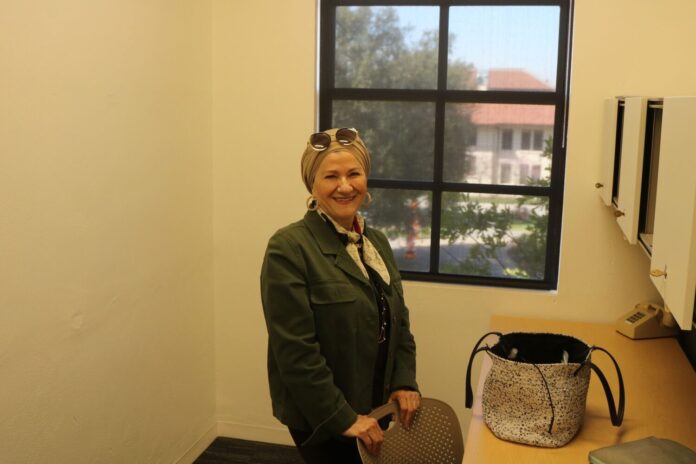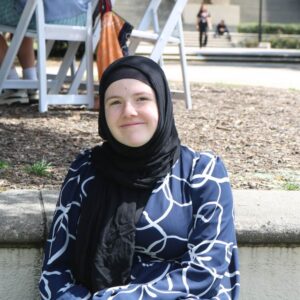
Interested in calligraphy, connecting with non-Western languages or adding a facet to your Diplomacy & World Affairs (DWA) major? Arabic professor Lina Kholaki said learning Arabic can be good for all three. According to the program’s website, the Arabic program at Occidental offers elementary, intermediate and advanced levels of Modern Standard Arabic (MSA), and students can study abroad in Morocco or Jordan.
“When you learn [the] language, you’ll be exposed to the culture, and you’ll learn how people in the Middle East are exactly like you,” Kholaki said. “It’s beautiful because it connects you with people, and you get to understand how people think.”
Kholaki said that although she encourages students to learn Arabic dialects, versions of Arabic spoken in specific regions, at the intermediate level, Occidental’s courses teach MSA because of its universality.
“No matter where you go, in any region in the Middle East, if you speak MSA everyone understands you,” Kholaki said. “If you are an educated person, and you want to address that in your speaking, you will use MSA.”
Julia Carrigan (sophomore) said that one of the reasons that she chose to attend Occidental was because it had an Arabic program. Carrigan said that she is interested in Arabic for religious reasons.
“The reason I’m taking the class is because I wanted to learn the Quran in Arabic, which is in MSA,” Carrigan said. “I can understand the grammatical structures more than I could last Ramadan when I read it.”

Karim Abraham (senior) said that after taking a trip to Lebanon, he became interested in learning Arabic to connect more closely with his Iraqi and Lebanese cultures. During the COVID-19 pandemic, Abraham said that he took a semester off from Occidental and began learning Arabic’s Lebanese dialect through a professor near his hometown. Since returning to campus, Abraham said that Kholaki’s teaching has been the highlight of his Arabic experience at Occidental.
“She’s a real joy to learn from,” said Abraham. “Also, the fact that she’s Syrian is helpful because Syrian and Lebanese dialects are fairly similar, like super similar, so if I’d accidentally slip into using a word from [Lebanese] dialect she’d understand and kind of help me map the Modern Standard Arabic and [Lebanese] dialects onto each other.”
In addition to her religious reasons for learning Arabic, Carrigan said that she recommends students learn the language because it has a simple grammatical structure and only three tenses.
“Once you learn the script, almost everything is phonetic. You can just pronounce it exactly how it looks,” Carrigan said. “Basically, it’s a very beautiful language.”
According to Abraham, the conversation class recently took a field trip to a Lebanese restaurant in La Cañada, Byblos Mediterranean Bakery, which included a huge spread of food. Kholaki said that the trip had an academic component, too.
“The unit was on food and all of that, so I wanted the students to experience it,” Kholaki said. “But at the same time we used our vocabulary, our phrases: ‘please, thank you, what is in this dish, what are the ingredients?’”
Both Carrigan and Abraham said that they had planned to enroll in Arabic 201 this Spring, until the class was cancelled due to low enrollment.
“One of the reasons which I took [Arabic] 102 is because I was hoping to get into 201, and then they didn’t offer it which was very disappointing to me,” Abraham said. “I hope that the school is able to implement a more consistent program so that people like me, who are Arab and want to learn Arabic more, or anyone who is interested in the language, is able to commit to that the second that they get to the school.”
Carrigan and Abraham said that they are currently enrolled in an intermediate, one-credit Arabic conversation class. Kholaki said that the conversation class gives students a chance to connect with Arabic until next Fall, when both Arabic-101 and 201 will be offered. Kholaki said that she encourages anyone interested in Arabic to challenge themselves and learn the language.
“It’s a totally new language — reading from right to left is [the] first thing you’ll experience,” Kholaki said. “It’s magical.”
Contact James Miller at jmiller4@oxy.edu
![]()






























